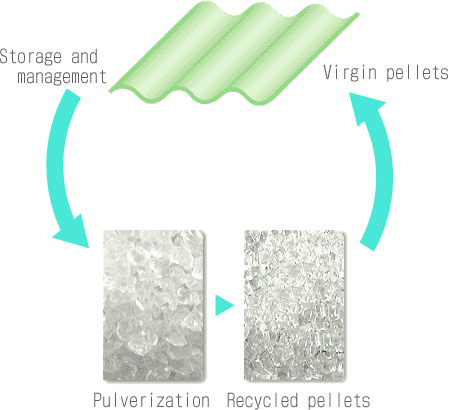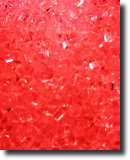For the recycle and sales of waste plastics from corporations,
please ask anything to Ihara Synthesis in Nagoya.
![]()
In Japan, known as a big economic power, the development of economic activities and the active consumption activities are discharging a huge volume of wastes. Recently, however, recycling has been called for so earnestly, controlling the rising trend of general waste discharge to be leveling-off. For the industrial wastes, on the other hand, as much as annual 3.9 tons of wastes have been discharged, which is eight times as much as that of general wastes, and therefore the furtherance of recycling is called for. In order to promote the recycling under these circumstances, the quality of recycling materials should be improved. For recycling plastics, segregation and storage management are key words, which are essences of recycling materials. Segregation work for waste plastics discharged in a huge volume, however, claims for labor cost. This makes the recycling of waste plastics costly against the tide. To solve this problem, the individual cooperation of producers and consumers is indispensable.
Taking this recycling as our mission, we are doing our best with aim at zero discharge of industrial wastes.

Polycarbonate has high resistance to impact that remains unchanged even at high temperature up to 120oC or so. It also has high resistance to heat and cold. Furthermore, polycarbonate is nonflammable, highly resistant to weather, ultraviolet rays and sunlight, transparent, stable in dimensions and high in electric insurance. However, it is vulnerable to repeated load and soluble to chlorine-containing solvents as drawbacks.
Pellets are rice-grain sized resin cuts for convenience in stable supply as a raw material for molding plastic products. Depending on plastic types, there are various recycled products.

This photo shows a sample.
- | PRIVACY POLICY |
- INQUIRY |